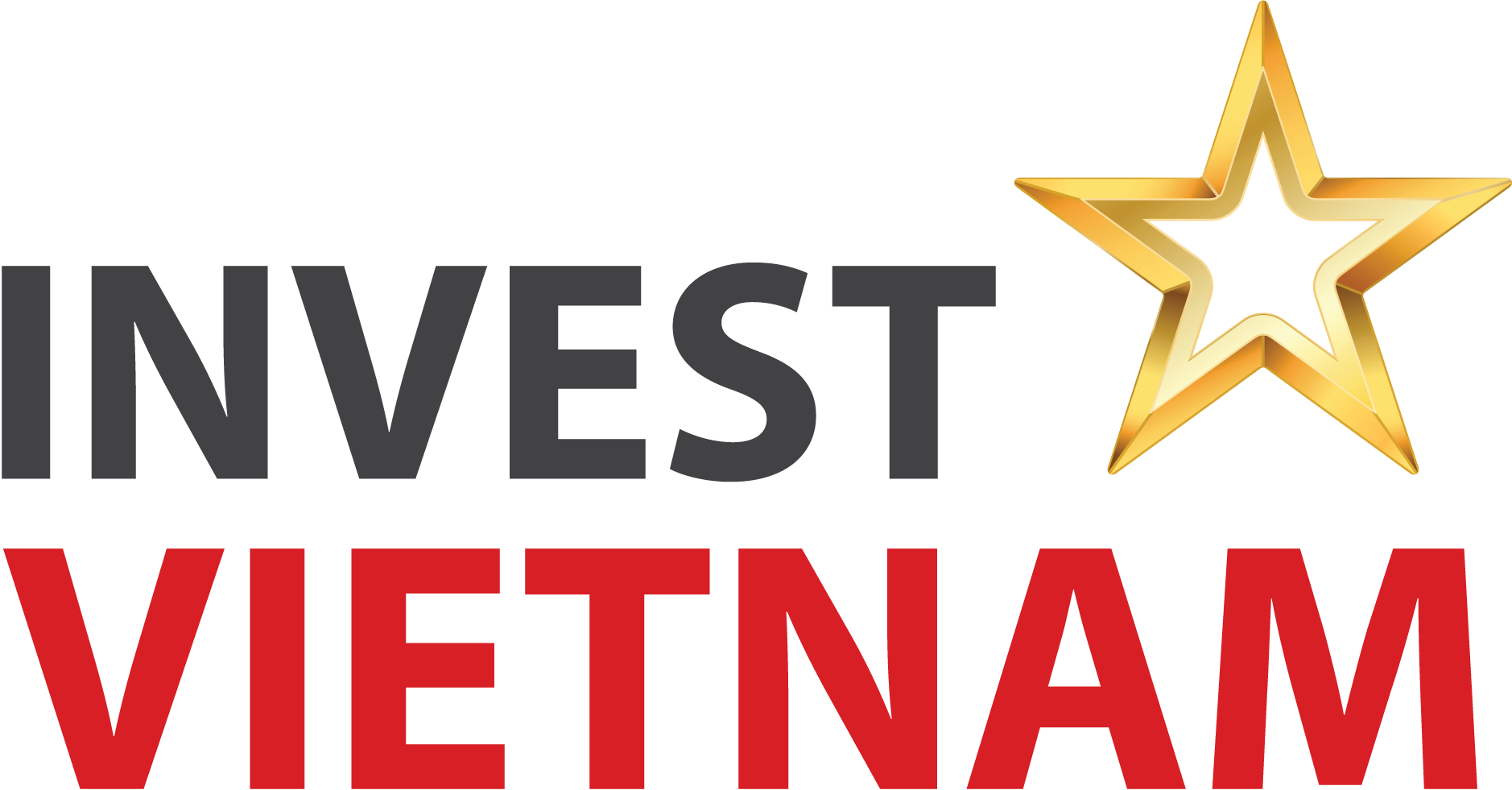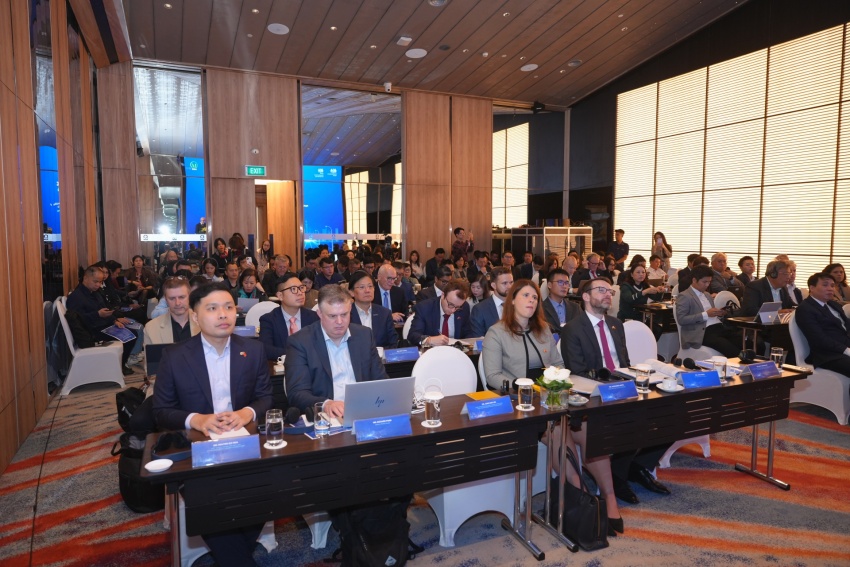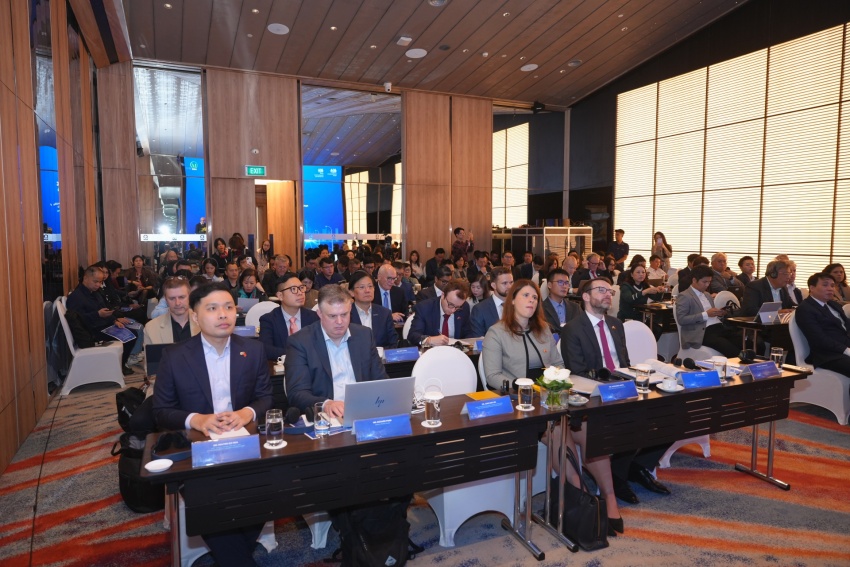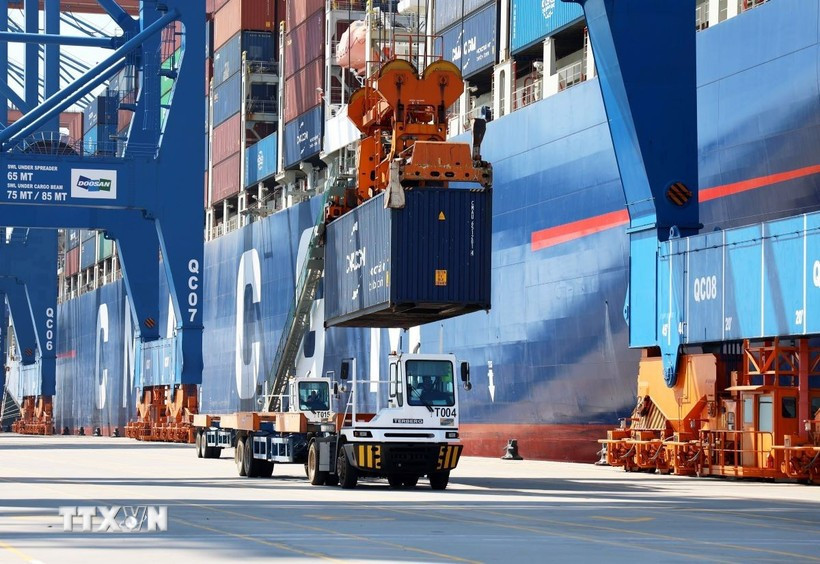Policies to attract investment waves into the semiconductor chip industry needed
Việt Nam has been emerging as a key market for large semiconductor chip production globally. However, competition among countries in the region and around the world in attracting foreign direct investment, especially in the semiconductor industry, is fierce. So what solutions does Việt Nam need to take advantage of opportunities to welcome a wave of investment in the sector? Vietnam News Agency spoke to Hoàng Việt Anh, Deputy General Director of FPT Corp on this issue.

HÀ NỘI — Việt Nam has been emerging as a key market for large semiconductor chip production globally. However, competition among countries in the region and around the world in attracting foreign direct investment, especially in the semiconductor industry, is fierce. So what solutions does Việt Nam need to take advantage of opportunities to welcome a wave of investment in the sector?
Vietnam News Agency spoke to Hoàng Việt Anh, Deputy General Director of FPT Corp on this issue.
How do you evaluate the potential and opportunities to attract investment in Việt Nam's semiconductor chip industry?
Việt Nam has a lot of potential to develop semiconductor chip technology. This industry can soon become a key economic sector of Việt Nam and the country has enjoyed many opportunities to attract investment in the industry.
The country is also a market with great potential in chip consumption. Its chip market has experienced an annual growth rate of 6.12 per cent in recent years. The scale of the market is expected to reach about US$1.66 billion by 2027.
In addition, Việt Nam has attracted the great attention of investors and has become a destination for researching, developing and producing semiconductor chips. This comes from several reasons.
The country has the advantage of natural conditions and is one of the few countries in the world with rare earth reserves - an important raw material in semiconductor chip production.
The visit of US President Joe Biden to Việt Nam in September 2023 opened up opportunities for the two countries to cooperate in semiconductor chip production. That is expected to facilitate the development of this industry in Việt Nam.
The Vietnamese Government has continuously issued preferential policies to attract foreign investment, especially in the semiconductor chip sector. With cooperation agreements with many countries, Việt Nam will continue to issue more incentives to attract foreign investment in the coming time.
The country also has a young and dynamic workforce, which is eligible to become engineers in the semiconductor chip manufacturing industry. Although there are currently only about 5,000 engineers working in 40 chips and semiconductor companies in Việt Nam, the nation has a plan to increase this number of engineers 10 times between now and 2030. So I have to say that Việt Nam has the potential to become one of the destinations for research, development and production of semiconductor chips in the world shortly.
Many industry giants are keen on investing in the semiconductor chip industry in Việt Nam. What have Vietnamese businesses, including FPT, done to prepare for this?
Over the past 20 years, the Vietnamese Government has issued many preferential policies to attract foreign investors in the semiconductor chip sector. Many large enterprises in the world such as Intel, Samsung or Foxconn are present in Việt Nam.
Việt Nam has also considered the semiconductor chip a key industry in the future. Domestic businesses have coordinated with the State to draw up policies and development roadmaps for Việt Nam. Specifically, the country strives to train about 50,000 engineers specialising in the field of chips and semiconductors from now to 2030.
Large Vietnamese enterprises such as Viettel, VNPT and FPT have also proactively built their capacities to participate in chip research, development and production.
For FPT, we have launched FPT Semiconductor Co which specilises in the field of semiconductor chips. The company has received large orders to produce over 70 million chips.
At the same time, we have also focused on launching training programmes on semiconductor chips at the FPT education system. In addition, we will continue to expand international cooperation, while concentrating on research, investment, mergers and acquisitions of capable businesses in the sector to increase our internal strength.
What do you think about the quality of Việt Nam's personnel resources in the semiconductor chip sector and what policies does FPT have to develop human resources to meet the requirements of the industry?
I think, Việt Nam's young human resources are quite quick to learn new technology. However, the investment in developing personnel resources for the semiconductor chip sector in Việt Nam remains modest. Up to now, Việt Nam only has 5,000 engineers working in about 40 chip and semiconductor companies.
Following the State's plan to train about 50,000 engineers in semiconductor chips from now to 2030, FPT has made preparations and policies to develope human resources in the industry.
Besides the launch of FPT Semiconductor Co, which targets to train 10,000 engineers by 2030, we have also accelerated international cooperation, investment and mergers and acquisitions of foreign IT firms.
From a business perspective, what recommendations does FPT have so that businesses can participate in the semiconductor chip supply chain amid a wave of foreign investment in Việt Nam?
The semiconductor chip is a potential for not only Việt Nam but also for FTP and human resources are considered the first important key in building the semiconductor chip industry in Việt Nam. Therefore, we hope that the Government will drastically and strongly promote training and building high-quality human resources in the field. To do this, the State needs to have policies to encourage domestic training centres and universities to focus on this area.
Furthermore, Việt Nam should create a playground for domestic and foreign businesses to boldly invest and do business in semiconductor chips. Preferential policies for businesses will be also needed to create motivation for them to invest in the industry.
In addition, the State needs to consider and ensure adequate facilities and good living conditions when attracting Vietnamese engineers or good experts from around the world to work in the country.
Last but not least, Việt Nam should have certain synchronisation in logistics infrastructure, hardware and software, thereby facilitating the sector's development.
Which are FPT's solutions to participate in the semiconductor chip supply chain?
From 25 years of experience in software development, we have given some specific directions.
FPT, along with other large Vietnamese enterprises such as Viettel and VNPT, will make efforts and actively coordinate with the State in building models, policies and solutions to speed up the industry's development including encouraging foreign and domestic enterprises to join the field.
In addition, we will focus on investing in building high-quality engineering human resources. This is one of the key directions we have been implementing drastically in the future.
In the semiconductor chip supply chain, businesses can participate in the research and development stage, production testing and sales distribution. Currently, FPT is in charge of the product research and development stage. During the production process, we have to team up with foreign original equipment manufacturers for production and distribution abroad as conditions in Việt Nam are not ready.
FPT and other businesses are also actively discussing and consulting with the Government in building a roadmap, legal framework as well as policies to encourage investment and ensure that investors can recoup their investments as soon as possible. This is considered one of the important steps to build the semiconductor chip production chain in Việt Nam in the time to come.
Source: VNS
Original link







